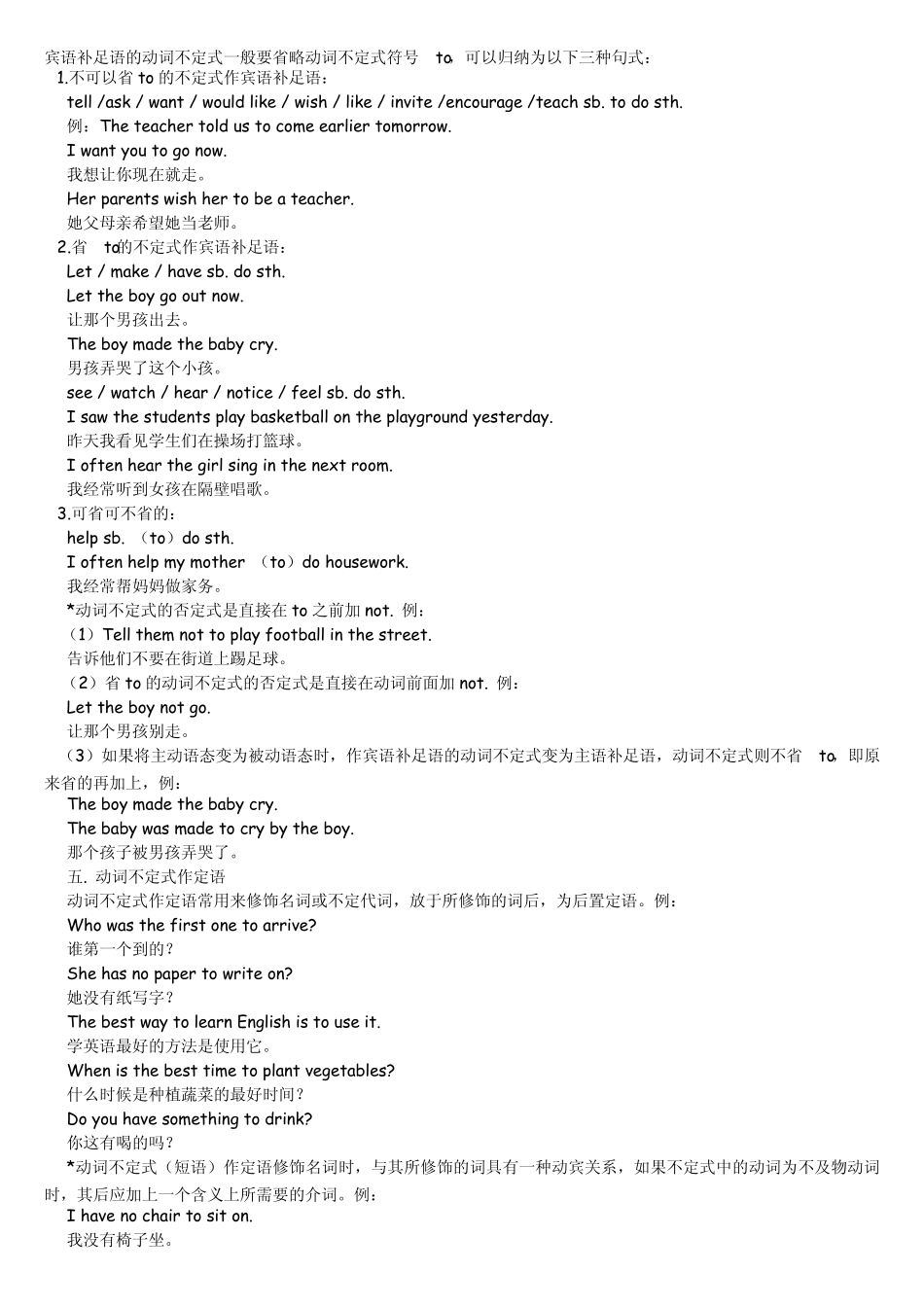一. 作主语 例如: To be a doctor is hard. 做医生很难。 To learn English well is not easy.学好英语不容易。 动词不定式(短语)作主语时,为了避免句子的头重脚轻,可以用“it”作形式主语,而把真正的主语--动词不定式(短语)放在句子的后部。例如上面的句子可以表示为: It is hard to be a doctor. It is not easy to learn English well. 再如: It’s important to plant trees in spring. 如果动词不定式的动作是谁做的,可以在动词不定式前面加一个由介词 for 引导的短语,称为不定式的复合结构。例: It’s good for us to read English aloud in the morning. 对我们来说每天早晨大声读英语是很有益的。 It is important for students to use English every day. 对学生来说每天使用英语是很重要的。 二. 作表语: 动词不定式(短语)作表语常用于系词 be 的后面。例: His work is to drive a car. 他的工作是开车。 My job is to feed animals. 我的工作是饲养动物。 Her ambition is to be a doctor. 她的理想是当医生。 三. 作宾语 动词不定式(短语)可以放在一些动词后面用作宾语,能以动词不定式作宾语的动词有:begin,start, want, forget, remember, show, learn, like, hate, love, ask 等。例: I want to tell you a story. 我想给你讲个故事。 They begin to work at eight every morning. 他们每天早晨 8 点开始工作。 Don’t forget to lock the door. 别忘了锁门。 Would you like to go and have a picnic with us tomorrow? 明天和我们一起去野餐好吗? *如果 and 连接两个动词不定式,第二个动词不定式一般省“to”例: (1)He wants to go and have a swim with us. 他想和我们一起去游泳。 (2)若作宾语的动词不定式(短语)很长,可用 it 作形式宾语。 I find it interesting to learn English with you. 我觉得和你一起学英语很有趣。 He found it hard to catch up with others. 他觉得赶上别人很困难。 四. 作宾语补足语。例如: The teacher asked us to read English for half an hour in the morning. 老师让我们早晨读半小时英语。 The teacher often tells Jim not to spe...


